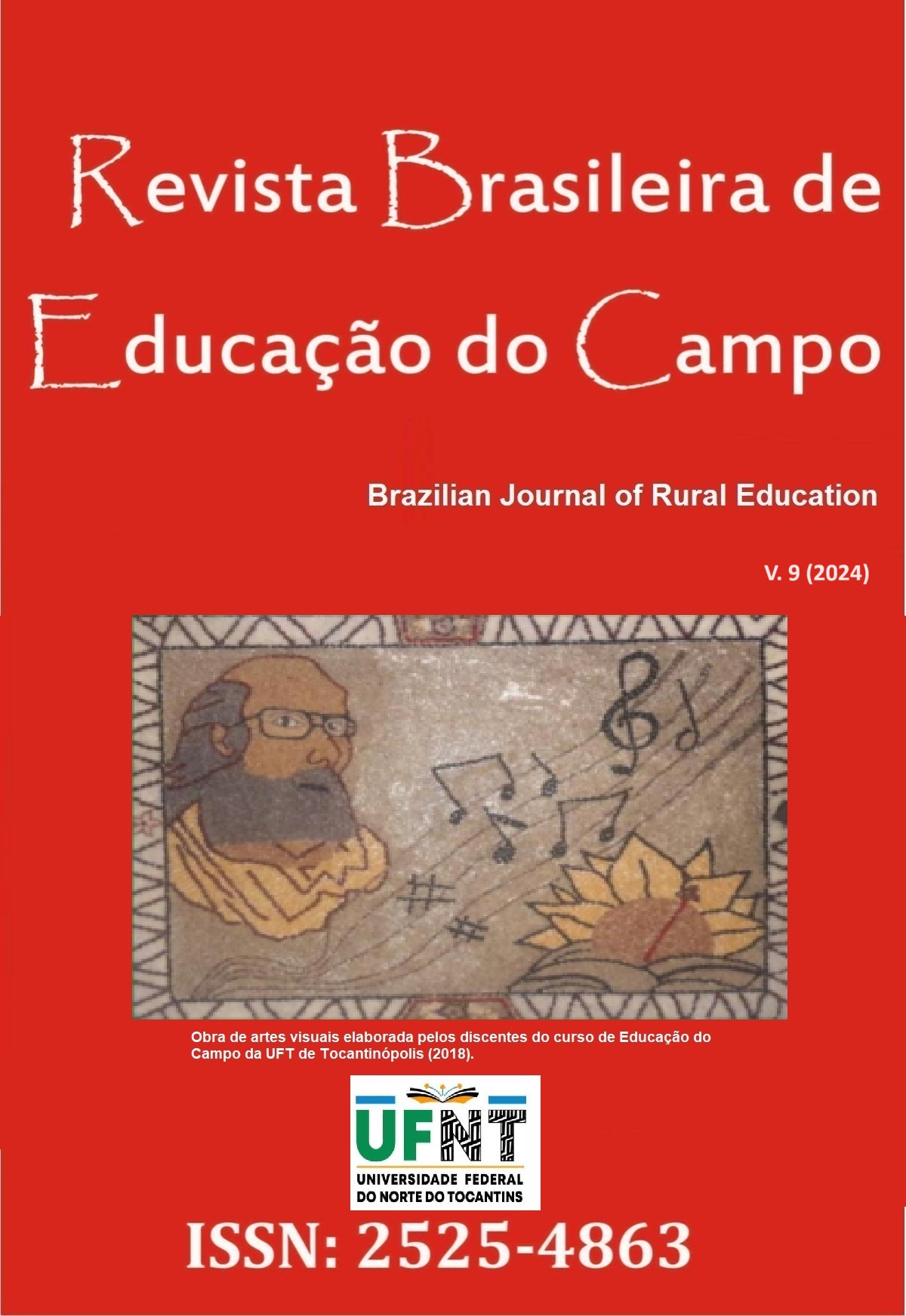The Historical Construction of School Practices of Agricultural Family Schools in Rio Grande do Sul
DOI:
https://doi.org/10.70860/ufnt.rbec.e16739Abstract
ABSTRACT. In Rio Grande do Sul (RS), since 2010, the Agricultural Family Schools (EFA) have been undergoing an expansion process. There are four schools in this settings at the state, linked to the precepts of Rural Education and the Alternancy Pedagogy. The objective of this work is to describe the historical trajectory of Rural Education, the Alternancy Pedagogy and the relevant legislation in RS. Furthermore, it intends to evaluate its influence in the process of expansion and organization of EFA. The research was carried out in two stages: the exploratory study and the field research. Data collection was carried out through semi-structured interviews with the EFA’s pedagogical coordinators and monitors. The results demonstrate that successful experiences with the Alternancy Pedagogy are directly related to the participation of the community and rural social movements. It was possible to understand that in RS the specific legislation also benefited the process of increasing the number of EFA through joint actions with the State Committee for Rural Education.
Downloads
References
Alves-Mazzotti, A. J., & Gewandsznajder, F. (1999). O método nas ciências naturais e sociais: pesquisa quantitativa e qualitativa. São Paulo: Pioneira.
Appolinário, F. (2011). Metodologia da ciência: filosofia e prática da pesquisa. São Paulo: Cengage Learning.
Bardin, L. (2011). Análise de conteúdo. (L. A. Reto & A. Pinheiro, Trans.). São Paulo: Edições 70.
Costa, J. P. R. (2012). Escola Família Agrícola de Santa Cruz do Sul - EFASC: uma contribuição ao desenvolvimento da região do Vale do Rio Pardo a partir da Pedagogia da Alternância (Dissertação de Mestrado). Universidade de Santa Cruz do Sul, Santa Cruz do Sul.
Gimonet, J. C. (2007). Praticar e compreender a Pedagogia da Alternância dos CEFFAS. Petrópolis, RJ: Vozes.
Instituto Brasileiro de Geografia e Estatística - IBGE. (2010). Censo demográfico, 2010. Rio de Janeiro.
Molina, M. C., & Freitas, H. C. A. (2011). Avanços e desafios na construção da Educação do Campo. Em Aberto, 24(85), 17-31.
Redesul. (2012). Formada Associação da EFA Serra Gaúcha. Recuperado de https://www.redesul.com.br/noticias/show/noticia/24622-formada-associacao-da-efa-serra-gaucha
Schneider, S. (2012). Educação do Campo e sustentabilidade: o caso da Escola Família Agrícola em Santa Cruz do Sul (Dissertação de Mestrado). Universidade de Santa Cruz do Sul, Santa Cruz do Sul. DOI: https://doi.org/10.7867/1809-0354.2013v8n3p964-985
Vergutz, C. (2013). Aprendizagens na pedagogia da alternância da Escola Família Agrícola de Santa Cruz do Sul. (Dissertação de mestrado em Educação). Universidade de Santa Cruz do Sul – UNISC.
Downloads
Published
How to Cite
Issue
Section
License
Copyright (c) 2024 Daiane Netto, João Ernesto Pelisari Candido, Marilisa Bialvo Hoffmann, Glauco Schultz

This work is licensed under a Creative Commons Attribution 4.0 International License.
Proposal for Copyright Notice Creative Commons
1. Policy Proposal to Open Access Journals
Authors who publish with this journal agree to the following terms:
A. Authors retain copyright and grant the journal right of first publication with the work simultaneously licensed under the Creative Commons Attribution License that allows sharing the work with recognition of its initial publication in this journal.
B. Authors are able to take on additional contracts separately, non-exclusive distribution of the version of the paper published in this journal (ex .: publish in institutional repository or as a book), with an acknowledgment of its initial publication in this journal.
C. Authors are permitted and encouraged to post their work online (eg .: in institutional repositories or on their website) at any point before or during the editorial process, as it can lead to productive exchanges, as well as increase the impact and the citation of published work (See the Effect of Open Access).















